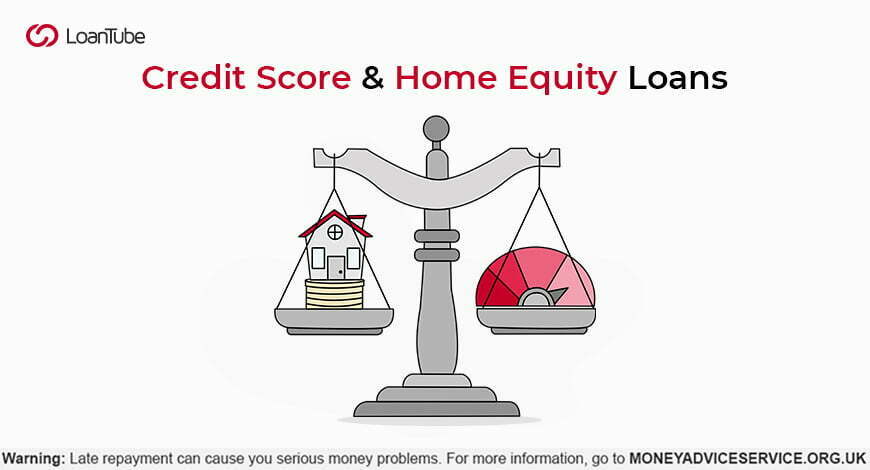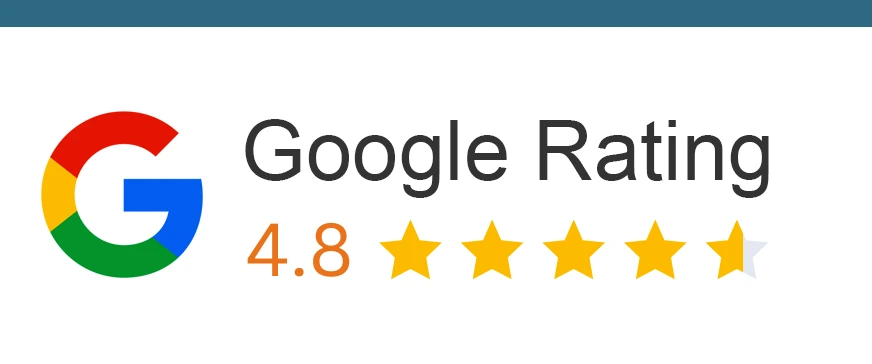Home equity loans can solve just about any purpose. But it’s how responsibly you use your money that matters. An equity is not the only thing you need to get this loan, there are several factors involved in the success of your application. One crucial factor is your credit score. Find out what credit score you need to get a home equity loan.
Big budget expenses can eat up a huge chunk of your savings. Rather than burning a large hole in your pocket, leverage the equity you have in your property to lighten the blow. Be it a home improvement project, or consolidating hefty debt, a home equity loan could pull you out of a financial crisis. But just how easy is it to qualify for one?
Let’s understand how exactly home equity loans work and the impact that your credit score has on your application.
Maximise your options: Compare and apply for loans below with LoanTube
Apply Filters
What is a home equity loan?
- A home equity loan is a secured credit that allows you to borrow money against the equity that you hold in your property. In some ways, a home equity loan can be considered as a ‘second mortgage’. The loan is secured against your property and can be paid off over monthly instalments with a fixed interest rate, just like a mortgage.
- Home equity loans are often used to finance large expenses such as home improvement projects. Most people use home equity loans to finance expensive home improvement projects because they enable you to borrow a considerable amount of money. And, since these loans are secured, they tend to have low-interest rates. However, it is important to understand the risks associated with this type of credit. Home equity loans put your property at risk. If you’re unable to keep up with the loan’s repayments, the lender can repossess and sell your property to recover their loss.
- Thus, you need to ensure your affordability before taking out a home equity loan. Borrowing more than what you can afford may jeopardize your only home. So bear the consequences in mind to make an informed decision and use the credit responsibly.
Am I eligible to borrow a home equity loan?
Here’s a checklist to help you understand the eligibility criteria for a home equity loan:
- Have at least 15-20% of the equity in your home (LTV of at most 85%)
- Have a debt to income ratio of 43% or less
- Have a decent credit score (mid 600s)
- A proof of employment to document your ability to repay
How do I calculate my equity?
- Equity is the portion of the property for which you’ve paid off the mortgage. You can calculate your equity by subtracting the amount you owe in your mortgage, from your property’s appraised or market value. The more you pay towards your mortgage, greater will be your equity in the property.
Let’s illustrate this with an example:
You purchased a property worth £500,000, and its appraised value is £525,000. You’ve been paying down your mortgage routinely, and your outstanding mortgage balance is £225,000. So, your equity in the property is £300,000.
On the other hand, Loan-to-Value is the ratio between the amount of loan you borrow and the market value of your property, expressed in percentage. The remaining value is the money that you pay down as the deposit.
For instance, if you want to purchase a property worth £300,000 with a deposit of £150,000, you’ll need to loan to cover the rest, i.e. £150,000. To calculate the LTV, divide the mortgage amount by the property’s market value. In this case:
£150,000 / £300,000 = 0.5
To convert this figure into a percentage, multiply it by 100:
0.5 * 100 = 50%
Now, if you plan on borrowing £100,000 with an LTV of 50%, you could calculate the combined LTV by adding this loan amount to the mortgage amount and divide the sum by the property’s market value:
(£150,000 + £100,000) / £300,000 = 0.83
0.83 * 100 = 83%
Thus, your effective or combined LTV is 83%, which may be acceptable for home equity lenders.
Where can I use a home equity loan?
Once you get the funds from a home equity loan, you can use them for any purpose that you’d like. Following are some of the most common reasons for people to borrow home equity loans:
- Finance a home improvement project
- Consolidate high-interest debt
- Fund higher education
- Invest in another property
- Raise capital for a business
- Cover emergency medical expenses
While a home equity loan can help you out of any situation, it is important to understand that you should use credit responsibly. Try not to use these funds for discretionary expenses and implement calculated borrowing, even if you could’ve borrowed more.
What credit score do I need to get a home equity loan?
- Lending criteria differ among different lenders. While there is no discrete value that lenders look for, maintaining a credit score in the mid-600s may be a safe bet. However, if you want to avail competitive interest rates, try and aim for a higher score. There are many factors involved in the success of your application, but credit scores play a crucial role. Thus, a high credit score can certainly give you an edge.
Why consider a home equity loan?
Several reasons make home equity loans a good way to finance big-ticket expenses. But there are several downsides to the product as well. Weigh the pros and cons before making the final call:
Pros
- Fixed monthly instalments: Home equity loans have fixed interest rates. So, you’ll have to pay a fixed amount of money each month over your repayment period. This makes it easier to incorporate these instalments into your monthly budget to reduce the probability of default.
- Low-interest rates: Home equity loans are secured loans. They pose a lower risk to lenders since they can recover their losses by foreclosing your property. Due to this fact, home equity loans tend to have low-interest rates – lower than that of credit cards, overdrafts or unsecured loans. However, the interest that a lender offers you may depend on the strength of your application. If you apply with a good credit score, low DTI and greater equity, you may qualify for competitive interest rates.
- Bigger loan amount: HHome equity loans may allow you to borrow a more substantial amount of money, depending on your available equity and lender criteria. This could provide access to larger sums at potentially lower interest rates compared to unsecured loans, but it’s important to borrow responsibly.
Cons
- Reduced home equity: Gaining equity in your property takes time, effort and a series of timely repayments on your mortgage. Borrowing against your property can reduce your equity, and it’ll take you longer to rebuild the equity you once had. If you’re planning to sell your home shortly, you may not get the best deal at the closing table with low equity.
- Risk of foreclosure: Repayments are crucial to all form of credit, particularly secured loans. A home equity loan allows you to borrow money against your property. But if you fail to repay this money, you can lose the secured property, probably your only home, to the lender. The risk of foreclosure is one of the biggest demerits of a home equity loan. So if you’re planning to get a home equity loan, you should plan out a repayment schedule in advance to avoid the chances of a default.
- Fluctuating property values: Property values fluctuate. Property prices in your area can drop. If they do, you could go underwater on your mortgage and home equity loan. This implies that you’ll owe more money than the property’s market value. You may face problems when you sell the property or refinance your mortgage.


